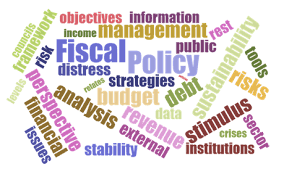Training Course on Fiscal Analysis and Revenue Forecasting
training course on Fiscal Analysis and Revenue Forecasting equips participants with the essential knowledge and practical skills to make informed financial decisions, optimize resource allocation, and drive sustainable growth.

Course Overview
Training Course on Fiscal Analysis and Revenue Forecasting
Introduction:
In today's dynamic economic landscape, the ability to accurately analyze fiscal performance and forecast future revenue streams is paramount for organizations and governments alike. This comprehensive training course on Fiscal Analysis and Revenue Forecasting equips participants with the essential knowledge and practical skills to make informed financial decisions, optimize resource allocation, and drive sustainable growth. Through a blend of theoretical foundations and hands-on application, you will gain mastery in interpreting financial data, identifying key fiscal trends, and developing robust forecasting models using cutting-edge techniques.
This intensive program delves into the core principles of Public Finance, Financial Modelling, and Economic Forecasting, providing you with a holistic understanding of the factors influencing fiscal health and revenue generation. You will learn to navigate complex datasets, apply various analytical methodologies, and effectively communicate your findings to stakeholders. Whether you are a seasoned finance professional or new to the field, this course will empower you to become a strategic asset in your organization by enhancing your ability to predict financial outcomes and contribute to sound fiscal planning.
Course Duration
10 days.
Course Objectives
- Understand the fundamental principles of fiscal analysis and its importance in decision-making.
- Master techniques for analyzing government financial statements and identifying key performance indicators.
- Develop proficiency in revenue forecasting methodologies, including time series analysis and econometric models.
- Learn to identify and assess the impact of Macroeconomic Factors On Fiscal Performance.
- Gain practical skills in using Financial Modeling Software for forecasting and scenario planning.
- Explore advanced techniques for forecasting tax revenue and other sources of government income.
- Understand the role of budget analysis in monitoring fiscal performance and ensuring accountability.
- Develop strategies for managing fiscal risk and enhancing financial resilience.
- Learn to apply forecasting best practices to improve the accuracy and reliability of revenue projections.
- Understand the principles of fiscal sustainability and its implications for long-term planning.
- Master the art of presenting fiscal analysis and revenue forecasts effectively to diverse audiences.
- Explore the use of data visualization techniques to communicate complex financial information.
- Analyze real-world case studies to understand the practical application of fiscal analysis and forecasting in different sectors.
Organizational Benefits:
- Improved accuracy in financial planning and budgeting.
- Enhanced ability to anticipate and respond to market changes.
- Better resource allocation and investment decisions.
- Increased profitability and financial stability.
- More informed strategic decision-making across departments.
- Enhanced accountability and financial transparency.
- Improved communication of financial performance to stakeholders.
- Development of in-house expertise in fiscal analysis and revenue forecasting.
Target Participants:
- Government Finance Officials (National, Regional, Local)
- Budget Analysts and Officers
- Revenue Officers and Administrators
- Financial Analysts in Public and Private Sectors
- Economists and Policy Advisors
- Managers and Decision-Makers Responsible for Financial Planning
- Auditors and Accountants
- Consultants in Public Finance and Economic Development
Course Outline:
Module 1: Foundations of Fiscal Analysis
- Understanding the scope and importance of fiscal analysis.
- Key concepts and terminology in public finance.
- The role of fiscal analysis in economic management.
- Sources of fiscal data and information.
- Ethical considerations in fiscal analysis.
Module 2: Analyzing Government Financial Statements
- Overview of government accounting standards.
- Analyzing the statement of financial position (balance sheet).
- Analyzing the statement of financial performance (income statement).
- Analyzing the statement of cash flows.
- Identifying key financial ratios and indicators.
Module 3: Introduction to Revenue Forecasting
- The importance of accurate revenue forecasting.
- Different types of revenue and their characteristics.
- Overview of forecasting methodologies: qualitative and quantitative.
- Data requirements for revenue forecasting.
- Challenges and limitations in revenue forecasting.
Module 4: Qualitative Revenue Forecasting Techniques
- Delphi method and expert opinions.
- Market research and surveys.
- Scenario planning and sensitivity analysis.
- Understanding the limitations of qualitative methods.
- Combining qualitative and quantitative approaches.
Module 5: Quantitative Revenue Forecasting: Time Series Analysis
- Introduction to time series data and its components.
- Moving average and exponential smoothing techniques.
- ARIMA (Autoregressive Integrated Moving Average) models.
- Seasonal adjustments in time series forecasting.
- Evaluating the accuracy of time series forecasts.
Module 6: Quantitative Revenue Forecasting: Regression Analysis
- Introduction to simple and multiple linear regression.
- Identifying relevant independent variables for revenue forecasting.
- Building and interpreting regression models.
- Testing the assumptions of regression analysis.
- Using regression for forecasting and policy analysis.
Module 7: Forecasting Specific Revenue Sources: Tax Revenue
- Understanding different types of taxes (income, sales, property, etc.).